22 start with S start with S

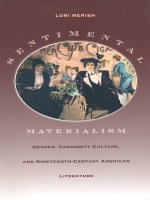
The phenomenon of female consumption was capitalism’s complement to male production: It created what Merish calls the “Other Protestant Ethic,”a feminine and sentimental counterpart to Max Weber’s ethic of hard work, economic rationality, and self-control. In addition, driven by the culture’s effort to civilize the “cannibalistic” practices of ethnic, class, and national otherness, appropriate female consumerism, marked by taste and refinement, identified certain women and their families as proper citizens of the United States. The public nature of consumption, however, had curiously conflicting effects: While the achievement of cultured material circumstances facilitated women’s civic agency, it also reinforced stereotypes of domestic womanhood.
Sentimental Materialism’s inquiry into middle-class consumption and accompanying ideals of womanhood will appeal to readers in a variety of disciplines, including American studies, cultural studies, feminist theory, and cultural history.
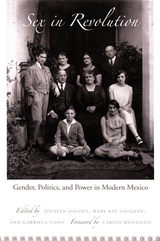
Concentrating on episodes and phenomena that occurred between 1915 and 1950, the contributors deftly render experiences ranging from those of a transgendered Zapatista soldier to upright damas católicas and Mexico City’s chicas modernas pilloried by the press and male students. Women refashioned their lives by seeking relief from bad marriages through divorce courts and preparing for new employment opportunities through vocational education. Activists ranging from Catholics to Communists mobilized for political and social rights. Although forced to compromise in the face of fierce opposition, these women made an indelible imprint on postrevolutionary society.
These essays illuminate emerging practices of femininity and masculinity, stressing the formation of subjectivity through civil-society mobilizations, spectatorship and entertainment, and locales such as workplaces, schools, churches, and homes. The volume’s epilogue examines how second-wave feminism catalyzed this revolutionary legacy, sparking widespread, more radically egalitarian rural women’s organizing in the wake of late-twentieth-century democratization campaigns. The conclusion considers the Mexican experience alongside those of other postrevolutionary societies, offering a critical comparative perspective.
Contributors. Ann S. Blum, Kristina A. Boylan, Gabriela Cano, María Teresa Fernández Aceves, Heather Fowler-Salamini, Susan Gauss, Temma Kaplan, Carlos Monsiváis, Jocelyn Olcott, Anne Rubenstein, Patience Schell, Stephanie Smith, Lynn Stephen, Julia Tuñón, Mary Kay Vaughan

Sex, Sexuality, and the Anthropologist recounts the real-life experiences of anthropologists who are forced to acknowledge that their hosts in the field view them as gendered beings in a social context, not as asexual, objective observers. Far from controlling the research environment and defining the terms of interviewer-informant relationships, these researchers find they must engage in a process of negotiating their position—including their sexual position—within the communities they study.
Ranging from public baths in Austria to lesbian bars in Taiwan and from Mexico to Nigeria to Finland to Japan, Sex, Sexuality, and the Anthropologist raises critical questions about ethnographers' reflexivity, subjectivity, and detachment, confronting the challenge of a holistic approach to the anthropological enterprise.

Give the little boy a gun; offer the little girl a doll—how many years of feminism would it take to uncover the meaning behind such assumptions? After decades of attacks on intractable sexual stereotypes, the time is right to ask what makes them so compelling and resistant to change. In The Sexual Metaphor, Helen Haste does just that, exposing the deep cultural roots of our insistent distinctions between masculine and feminine.
To understand changing sex roles, Haste suggests that we recognize the role that gender plays in how we make sense of the world, particularly through the use of metaphor. As she demonstrates, the assault on traditional conceptions of gender is in fact a confrontation with the metaphor of dualism, or polarity, that underlies Western culture, informing our models of rationality and control. Here our anxieties about our own masculinity or femininity encounter a cultural tangle of opposites—public and private, order and chaos, thinking and feeling, active and passive, hard and soft, positive and negative. Drawing on research in the fields of sociology, anthropology, the history of science, paleontology, and philosophy, as well as her own field of psychology, Haste demonstrates the pervasiveness of the metaphor of dualism in large areas of our lives and our thinking, and of metaphor itself as a mode of thought expressing theories about the world in science and popular culture. Her work, accessible to social scientists and general readers alike, is a stimulating tour of the dark, divided territory that is the backdrop for our organization of everyday experience, society, and sexual identity.
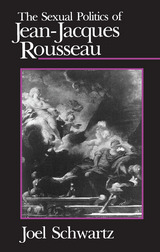
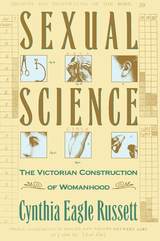
One scarcely knows whether to laugh or cry. The spectacle presented, in Cynthia Russett's splendid book, of nineteenth-century white male scientists and thinkers earnestly trying to prove women inferior to men--thereby providing, along with "savages" and "idiots," an evolutionary buffer between men and animals--is by turns appalling, amusing, and saddening. Surveying the work of real scientists as well as the products of more dubious minds, Russett has produced a learned yet immensely enjoyable chapter in the annals of human folly.
At the turn of the century science was successfully challenging the social authority of religion; scientists wielded a power no other group commanded. Unfortunately, as Russett demonstrates, in Victorian sexual science, empiricism tangled with prior belief, and scientists' delineation of the mental and physical differences between men and women was directed to show how and why women were inferior to men. These men were not necessarily misogynists. This was an unsettling time, when the social order was threatened by wars, fierce economic competition, racial and industrial conflict, and the failure of society to ameliorate poverty, vice, crime, illnesses. Just when men needed the psychic lift an adoring dependent woman could give, she was demanding the vote, higher education, and the opportunity to become a wage earner!
No other work has treated this provocative topic so completely, nor have the various scientific theories used to marshal evidence of women's inferiority been so thoroughly delineated and debunked. Erudite enough for scholars in the history of science, intellectual history, and the history of women, this book with its stylish presentation will also attract a large nonspecialist audience.
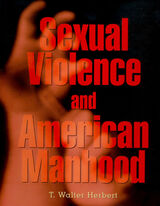
Taking up topics as diverse and timely as the work of FBI profilers, the pornography debates, feminist analyses of male supremacy as sexual abuse, the ritual meanings of fraternity gang rape, and the interplay of racial and sexual injustice, T. Walter Herbert illuminates the chronic masculine anxieties that seek compensation in fantasies of sexual coercion and in sexual offenses against women. His work offers an unusually clear view of this prevailing convention of insecure and destructive masculinity, which Herbert connects with contemporary analyses of male identity formation, sexuality, and violence and with cultural, political, and ideological developments reaching back to the nation's democratic beginnings.
Reading iconic nineteenth-century texts by Whitman, Hawthorne, and Stowe, and pursuing the articulation of their gender logic in Richard Wright's Native Son, Herbert traces a gender ideology of dominance and submission, its persistence in masculine subcultures like the military and big-time football, and its debilitating effects on imaginations and lives in our own day. In materials as diverse as Hannah Foster's post-Revolutionary War novel The Coquette and the Coen brothers' 1996 movie Fargo, this book taps into popular culture and high art alike to outline the logic of American manhood's violent streak--and its dire consequences for a culture with truly democratic and egalitarian ambitions.
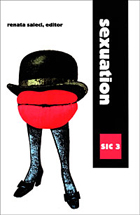
In this volume, contributors discuss a third way of thinking about sexual identity and sexual difference—a direction opened by Jacques Lacan. For Lacan, what we all recognize as sexual difference is first and foremost representative of a certain fundamental deadlock inherent in the symbolic order, that is, in language and in the entire realm of culture conceived as a symbol system structured on the model of language. For him, the logical matrix of this deadlock is provided by his own formulas of sexuation. The essays collected here elaborate on different aspects of this deadlock of sexual difference. While some examine the role of semblances in the relation between the sexes or consider sexual identity not as anatomy but still involving an impasse of the real, others discuss the difference between sexuation and identification, the role of symbolic prohibition in the process of the subject’s sexual formation, or the changed role of the father in contemporary society and the impact of this change on sexual difference. Other essays address such topics as the role of beating in sexual fantasies and jouissance in feminine jealousy.
Contributors. Alain Badiou, Elizabeth Bronfen, Darian Leader, Jacques Alain Miller, Genevieve Morel, Renata Salecl, Eric L. Santner, Colette Soler, Paul Verhaeghe, Slavoj Žižek, Alenka Zupancic
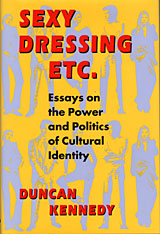
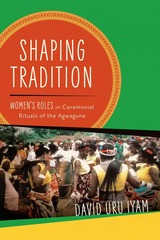
Using this community as a case study, David Uru Iyam asserts that these women are not stereotypically submissive, oppressed, or passive. Agwagune women participate in male ceremonies by pretending to be unaware of them, concealing their authority under a veneer of secrecy. Instead of focusing on obvious male political power, Iyam highlights the overlooked domestic and public contributions of women that uphold—and change—entire social systems.
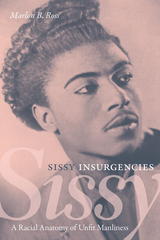
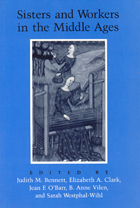
These essays provide a greater understanding of the ways in which gender has played a part in determining relations of power in Western cultures. This volume makes a vital contribution to the current scholarship about women in the Middle Ages.

A unique and important contribution to the study of sexuality, this book also suggests that the history of sexuality in the West was shaped by myths of the legendary Orient and the exotic "Other."
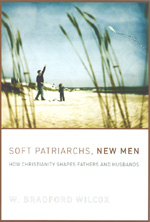
According to W. Bradford Wilcox, the divergent family ideologies of evangelical and mainline churches do not translate into large differences in family behavior between evangelical and mainline Protestant men who are married with children. Mainline Protestant men, he contends, are "new men" who take a more egalitarian approach to the division of household labor than their conservative peers and a more involved approach to parenting than men with no religious affiliation. Evangelical Protestant men, meanwhile, are "soft patriarchs"—not as authoritarian as some would expect, and given to being more emotional and dedicated to their wives and children than both their mainline and secular counterparts. Thus, Wilcox argues that religion domesticates men in ways that make them more responsive to the aspirations and needs of their immediate families.
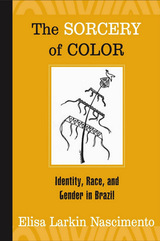
Originally published in 2003 in Portuguese, The Sorcery of Color argues that there are longstanding and deeply-rooted relationships between racial and gender inequalities in Brazil. In this pioneering book, Elisa Larkin Nascimento examines the social and cultural movements that have attempted, since the early twentieth century, to challenge and eradicate these conjoined inequalities.
The book's title describes the social sleight-of-hand that disguises the realities of Brazilian racial inequity. According to Nascimento, anyone who speaks of racism—or merely refers to another person as black—traditionally is seen as racist. The only acceptably non-racist attitude is silence. At the same time, Afro-Brazilian culture and history have been so overshadowed by the idea of a general "Brazilian identity" that to call attention to them is also to risk being labeled racist.
Incorporating leading international scholarship on Pan Africanism and Afrocentric philosophy with the writing of Brazilian scholars, Nascimento presents a compelling feminist argument against the prevailing policy that denies the importance of race in favor of a purposefully vague concept of ethnicity confused with color.
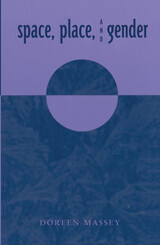
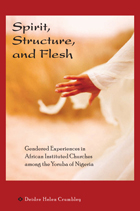
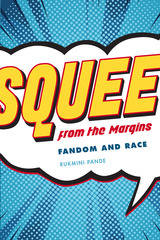
Rukmini Pande’s examination of race in fan studies is sure to make an immediate contribution to the growing field. Until now, virtually no sustained examination of race and racism in transnational fan cultures has taken place, a lack that is especially concerning given that current fan spaces have never been more vocal about debating issues of privilege and discrimination.
Pande’s study challenges dominant ideas of who fans are and how these complex transnational and cultural spaces function, expanding the scope of the field significantly. Along with interviewing thirty-nine fans from nine different countries about their fan practices, she also positions media fandom as a postcolonial cyberspace, enabling scholars to take a more inclusive view of fan identity. With analysis that spans from historical to contemporary, Pande builds a case for the ways in which non-white fans have always been present in such spaces, though consistently ignored.

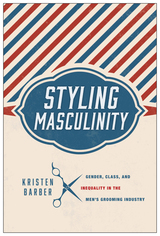
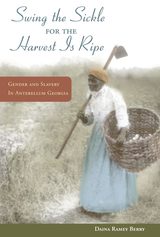
"Swing the Sickle for the Harvest Is Ripe" compares the work, family, and economic experiences of enslaved women and men in upcountry and lowland Georgia during the nineteenth century. Mining planters' daybooks, plantation records, and a wealth of other sources, Daina Ramey Berry shows how slaves' experiences on large plantations, which were essentially self-contained, closed communities, contrasted with those on small plantations, where planters' interests in sharing their workforce allowed slaves more open, fluid communications. By inviting readers into slaves' internal lives through her detailed examination of domestic violence, separation and sale, and forced breeding, Berry also reveals important new ways of understanding what it meant to be a female or male slave, as well as how public and private aspects of slave life influenced each other on the plantation.
A volume in the series Women in American History, edited by Anne Firor Scott, Susan Armitage, Susan K. Cahn, and Deborah Gray White
READERS
Browse our collection.
PUBLISHERS
See BiblioVault's publisher services.
STUDENT SERVICES
Files for college accessibility offices.
UChicago Accessibility Resources
home | accessibility | search | about | contact us
BiblioVault ® 2001 - 2024
The University of Chicago Press









